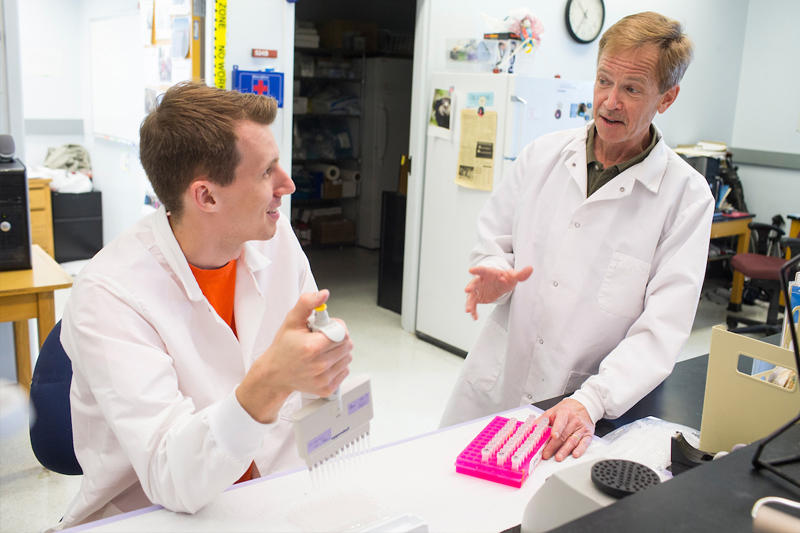French's work links cortisol levels to politics

OMAHA – When New York Public Radio reporter Amanda Aronczyk decided to do a story on election stress, she quickly determined she'd need help. She turned to the University of Nebraska at Omaha (UNO)'s Jeff French, Ph.D., Varner Professor of Psychology and Neuroscience, and University of Nebraska-Lincoln (UNL) Political Science Chair Kevin Smith.
After all, the pair's collaboration on stress and voting had made national headlines two years ago. French and Smith had discovered that people with higher levels of the stress hormone cortisol are less likely to vote.
Aronczyk wanted to investigate whether elections were stressing us out on a biological level.
"So we asked French and Smith to help us design an experiment of sorts," wrote the reporter. "We’d use the presidential debates as a proxy for the election."
A group of volunteer graduate students had the enviable job of collecting saliva samples from debate viewers. They also asked participants to fill out a survey, including their party affiliation, age, and self-reported stress level. Shortly after, the samples were overnighted to Omaha.
In the WNYC Only Human podcast, French said they found the debate didn't do much to impact cortisol levels, however they did make one unexpected find: stress levels differed based on the candidate the voter planned to support.
Interested in learning more? Read the Lincoln Journal Star story or listen to the podcast below: